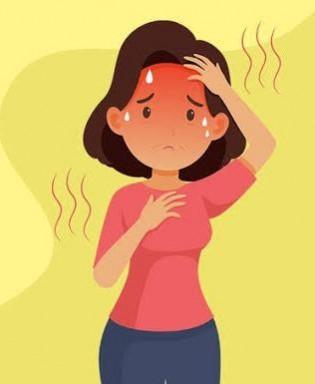
A study has highlighted the potential connection between severe menopause symptoms and cognitive impairment in postmenopausal women. The research, which involved nearly 1,300 late-postmenopausal women from nine Latin American countries, found that symptoms such as hot flashes, sleep disturbances, and mood disorders were associated with cognitive impairment. This discovery has significant implications for our understanding of cognitive health in midlife women and opens up new avenues for potential interventions.
Menopause, a natural biological transition marking the end of a woman's reproductive years, is often accompanied by a range of mental and physical changes. While these changes are not inherently worrisome, the study suggests that severe menopause symptoms can negatively affect cognitive function. This is particularly concerning given the global prevalence of dementia, a condition characterized by cognitive decline. Currently, more than 24 million people worldwide are living with dementia, and this number is expected to double by 2040, reaching 81.1 million.
The study's findings highlight the complex interplay of hormonal, lifestyle, and sociodemographic factors in influencing cognitive health. Dr. Stephanie Faubion, medical director for The Menopause Society, noted that the study showed a potential link between severe menopause symptoms and cognitive impairment in midlife women. She also pointed out that lower body mass index, higher educational level, physical exercise, hormone therapy use, and sexual activity could have a protective effect on cognition, underscoring the potential for targeted interventions to protect and preserve cognitive function in menopausal women.
The study raises the question of whether effectively treating hot flashes with hormone therapy or other approved therapies could improve cognitive functions like memory, attention, language, and executive function. However, this remains uncertain and requires further research. It's worth noting that 40% of Alzheimer's disease cases, the most common form of dementia, can be prevented or delayed. This has led to significant interest in identifying risk factors, particularly the role of estradiol in female cognitive ageing.

The study's findings are consistent with historical trends in dementia research. For instance, a previous report in 2020 emphasized the importance of prevention in managing dementia. The report highlighted factors such as lower education level, hearing problems, high blood pressure, smoking, obesity, depression, physical inactivity, diabetes, excessive drinking, traumatic brain injury, air pollution, and social isolation as potential risk factors for dementia.
The current study adds to this body of knowledge by suggesting that severe menopause symptoms could be an additional risk factor for cognitive decline. This is particularly significant given the aging global population and the increasing prevalence of dementia. It underscores the need for comprehensive and holistic approaches to women's health, particularly during the menopause transition.
The study provides valuable insights into the potential link between severe menopause symptoms and cognitive impairment in postmenopausal women. It highlights the need for further research to understand this relationship better and develop effective interventions. It also underscores the importance of a holistic approach to women's health, taking into account not just physical but also cognitive health. As the global population continues to age, such research will be crucial in informing strategies to prevent cognitive decline and improve the quality of life for millions of women worldwide.

















